10-45%
Inventory reduction
This website will offer limited functionality in this browser. We only support the recent versions of major browsers like Chrome, Firefox, Safari, and Edge.
Align your decisions to accelerate execution and deliver strategy—with Oliver Wight Integrated Business Planning Powered by Board.
Integrated Business Planning (IBP) is a best practice process that drives effective decision-making. It enables leaders to plan and manage their entire organization over a 24-to-36-month horizon, constantly aligning strategic and tactical plans to satisfy customers profitably through allocation of critical resources, people, equipment, inventory, materials, time, and money.
Inventory reduction
Lower budget time preparation
Increase in EBIT
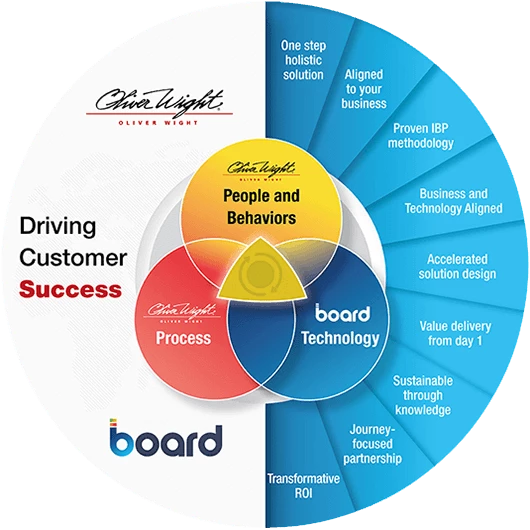
Ready to accelerate operational excellence, unlock consistent performance, and achieve faster growth? Look no further than Oliver Wight Integrated Business Planning Powered by Board.
Realize your organization’s IBP vision with our pre-built technology & consulting offering that translates Oliver Wight’s ‘Class A’ standard for IBP into a fully configurable solution that can be live in 12 weeks.
Talk to an expertInvented IBP as a successor to S&OP
Over 50 years’ experience integrating people, processes, and technology.
Proven track record in supporting client implementations.
Experts in operational best practices.
Empower clients through on-the-job education and coaching.
Focus on performance improvement, not mechanics or bureaucracy.
| Enhance your IBP process | Accelerate your IBP journey |
|---|---|
Cross-functional, analytics-driven IBP across operations, supply chain, and finance. | Rapid implementation option gets you up and running at lightning speed. |
Class A standard IBP process from Oliver Wight combined with industry-leading Enterprise Planning from Board. | Deploy Board in the same timeframe as the process education and design. |
Expert support from start to finish ensures strategic alignment, greater engagement, and reduced risk. | Ongoing Oliver Wight health check support post implementation. |





Benefit from Oliver Wight’s ‘Class A’ standard for Integrated Business Planning (IBP) translated into a fully configurable technology & consulting solution that can be live in 12 weeks.
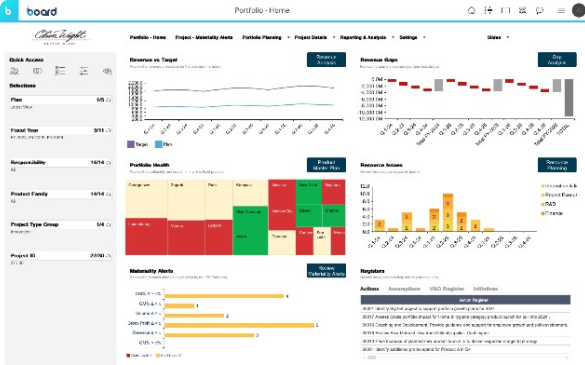
Industry-leading expertise implemented by thousands of organizations.
Preconfigured to meet 70% of your IBP requirements from the start—with the flexibility to customize as needed.
Configure and customize your solution to fully align with your unique requirements.
Focus on the decisions that you need to make to deliver your strategy and business plan, while increasing profit and cost avoidance potential.
Get automated, real-time data updates from legacy systems and write changes back with ease when plans change.
Identify and visualize gaps and risks to your strategy and business plan, transforming the way you work.
Configure and customize your solution in-house without the need for expensive redesign thanks to low code/no code setup.
Track performance versus the business plan and strategy, analyze complex data, and build and manage scenarios across portfolio, demand, and supply.
Understand project volume, revenue, cost, and profitability across the business.
Visualize changes to assumptions and their impacts on your plan.
Write back to your system of record.
Model vulnerabilities and opportunities in your scenario analysis.
Highlight gaps and issues along with recommendations to best manage them.
Manage and track decisions and actions.
Embed and empower organizational roles and responsibilities.
Document and control IBP process workflow.
Surface trends and manage KPIs.
Produce one-page summaries.
Orchestrate and sustain Integrated Business Planning transformation.
Run your IBP process review from the software to eliminate time-consuming information deck preparation.
Customize out-of-the-box standard visualizations to suit your needs.
Product/portfolio strategy, targets, and priorities.
Innovation funnel.
Product Master Plan.
Product/Portfolio Management.
Critical resource plan.
Sales and marketing strategy, targets, and priorities.
Unconstrained demand plan for the defined IBP horizon.
Receive demand from multiple external systems.
Overlay assumptions for trade promotion, strategic pricing, customer/channel adjustments, and management ADJs.
Integration with AI/ML for demand alignment.
Supply chain strategy, targets, and priorities.
Supply, procurement, and inventory plans for the defined IBP horizon.
Incorporate 3rd party supply.
Critical resource planning.
Flex capacity scenario evaluation.
Rough-cut P&L for the defined IBP horizon.
Gap to business plan and strategy including business priorities.
Gap-closing options modeled and recommendations produced.
Capex management incorporated.
Scenario planning.
Integrated Reconciliation Issues Tracker.
Strategic target and priority setting.
Materiality & decisions required.
Standard decision templates.
Technology designed to conform with the Oliver Wight IBP Proven Path.
Pre-built dashboards.
Customizable capsules.
Complete planning control in an easy, unified environment.
Supports advanced AI and ML.
Predictive planning and forecasting.
Global leader servicing over 75% of the F500.
50 years of transformational excellence.
UK’s Leading Management Consultants (Financial Times 2021 – 23).
Consultancy.uk Top Consultancy Firm 2023.
2025 Gartner® Magic Quadrant™ Leader for Financial Planning Software.
Microsoft Partner of the Year, ISV Category, Local Swiss Award.
G2 Crowd Leader in 15 Categories.
TrustRadius Top Rated in 8 Categories.

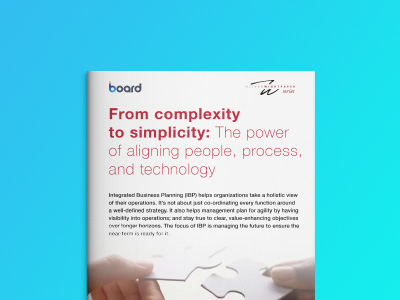
Integrated Business Planning (IBP). From complexity to simplicity: The power of aligning people, process and technology
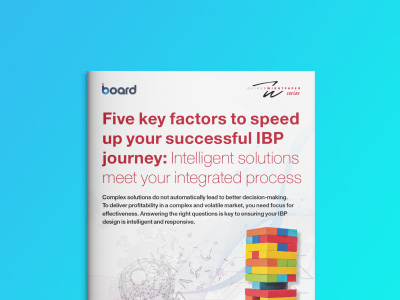

Connected. Confident. In Control. What IBP-driven companies know that you don’t.
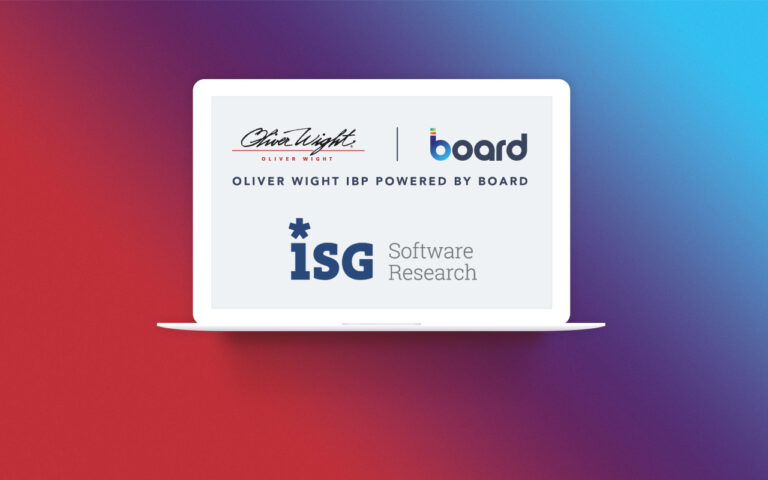
Smart Decisions, Fast: Leveraging IBP in a Rapidly Evolving World (Series)
Share your info and we’ll be in touch.